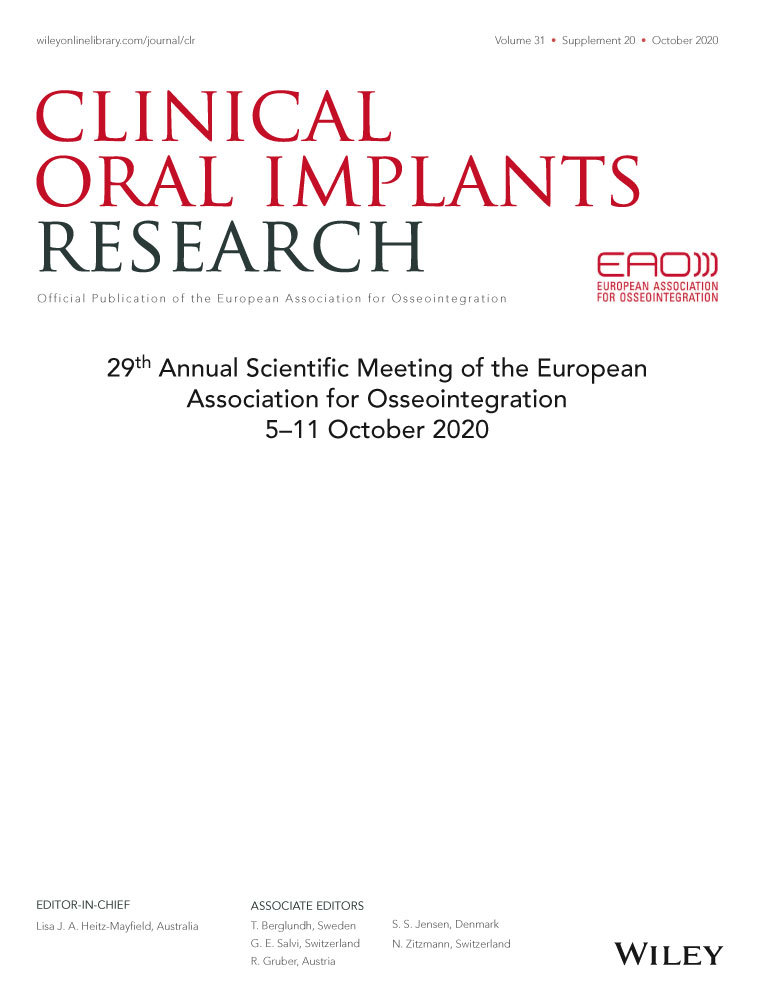Comparison of major biological and technical complications between hybrid resin and zirconia FTI-FDPs
Z73D3 ePOSTER CLINICAL RESEARCH – PROSTHETICS
Background: Full-arch telescopic-retained implant-supported fixed dental prostheses with professional retrievable system (FTI-FDPs) are recently used for edentulous patients, because they have relatively rapid and easy removal at maintenance. In the last two decades, zirconia increasingly used as an alternative material to resin. However, there is no report about comparison of biological and technical complications between hybrid resin and zirconia FTI-FDPs.
Aim/Hypothesis: The objective of this retrospective clinical study was to compare major biological and technical complications between FTI-FDPs using Co-Cr frame veneered with hybrid resin and FTI-FDPs using Co-Cr frame veneered with zirconia.
Materials and Methods: 90 edentulous patients treated with 120 FTI-FDPs and 865 implants in Tokyo Dental College Suidobashi Hospital and Chiba Dental Center between April 2005 and March 2015 (4-14 years follow up) were evaluated. Late implant failure and peri-implantitis were considered as major biological complications. Framework fracture, prosthetic material fracture, abutment fracture, abutment screw fracture and implant fracture were considered as major technical complications. Comparison was made between hybrid resin FTI-FDPs (HR group) and zirconia FTI-FDPs (Z group) in each complications. Kaplan-Meier survival curve analysis with the log-rank test was carried out for assessment of complications. The timeline was created at 10 years. This protocol was approved by the ethics committee of Tokyo Dental College (Approval number 787).
Results: HR group was 69 patients with 91 prostheses (60 upper, 31 lower), 653 implants (449 upper, 204 lower), 7.1 ± 1.3 implants/prosthesis and 9.2 ± 2.6 years of function. Z group was 21 patients with 29 prostheses (19 upper, 10 lower), 212 implants (150 upper, 62 lower), 7.3 ± 1.4 implants/prosthesis and 5.8 ± 1.8 years of function. In major biological complications, implant survival (late implant failure) were 98.7% (95% CI: 97.0–99.4, 647/653 implants) in HR group and 95.2% (95% CI: 74.7–99.2, 210/212 implants) in Z group, with no difference at 10 years. Peri-implantitis rates at 10 years were 4.9% (95% CI: 3.8–8.5, 27/653 implants) in HR group and 6.6% (95% CI: 6.2–20, 8/212 implants) in Z group, with no difference. In major technical complications, there were 2/91 of framework fracture and 3/91 prosthetic material fracture in HR group, and 1/29 of framework fracture and 1/29 prosthetic material fracture in Z group.
Conclusions and Clinical Implications: Within the limitations of this study, it can be concluded that zirconia FTI-FDPs were not inferior to hybrid resin FTI-FDPs with regards to major biological and technical complication rate at 5 and 10 years function. Therefore, zirconia FTI-FDPs can be useful instead of hybrid resin FTI-FDPs.
Keywords: edentulous patients, Full-arch, telescopic-retained fixed prostheses




